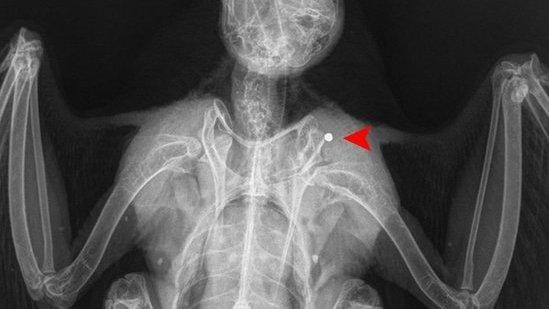'Spooked' urban peregrine falcons get new nests
- Published
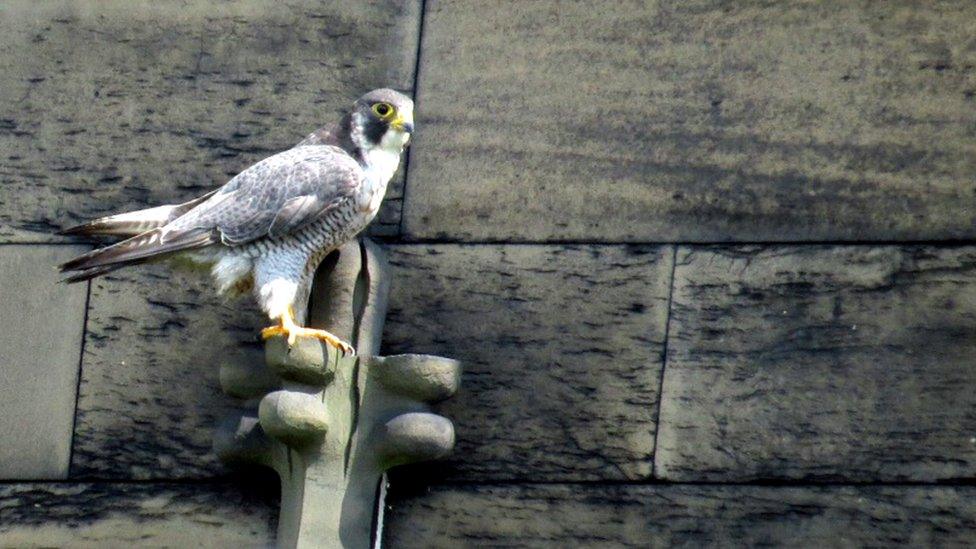
A pair of peregrine falcons in Leicester successfully reared two chicks in 2014
A pair of "spooked" peregrine falcons living in the centre of Leicester are to get a new nest after a "disappointing" breeding season.
The birds laid two eggs this year which disappeared, leaving the birds out of sorts. Leicestershire Police are investigating the eggs' disappearance.
It is hoped new nest boxes on the city's tallest buildings will provide a place for the pair to breed next year.
Tall buildings are said to "mimic the peregrines' natural environment".
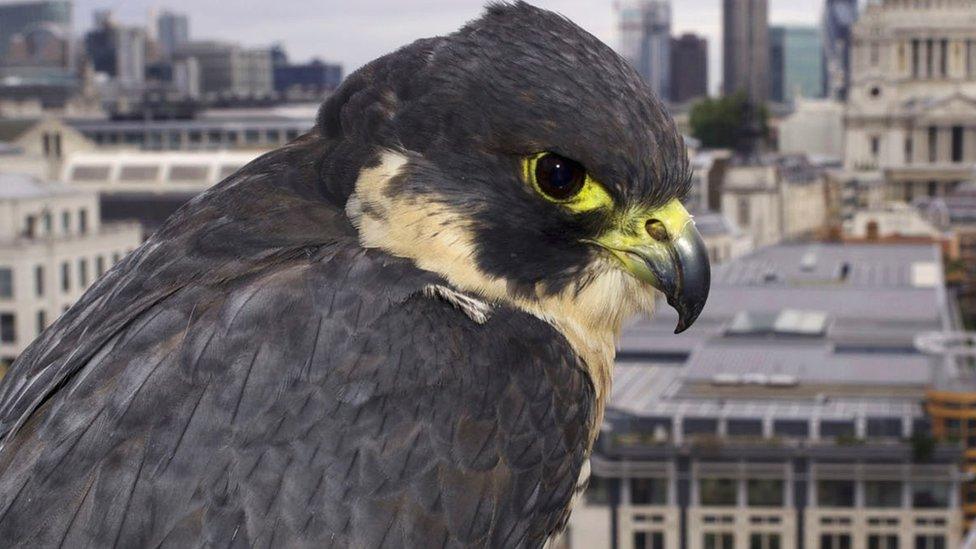
Tall buildings are said to "mimic the peregrines' natural environment"
Leicestershire and Rutland Ornithological Society (LROS), which has been monitoring the birds closely for the last two years, said the pair successfully reared two chicks in 2014.
Dave Gray, from LROS, said: "This year was disappointing.
"The birds laid two eggs in their nest, but the eggs disappeared and the birds were obviously spooked by something.
"We want to help the peregrines by encouraging them to nest at sites where we can watch them more easily and help prevent this happening again.
"The birds are active all year round so we hope they will have spotted the boxes and will start to use one of them next season."

Egg collecting
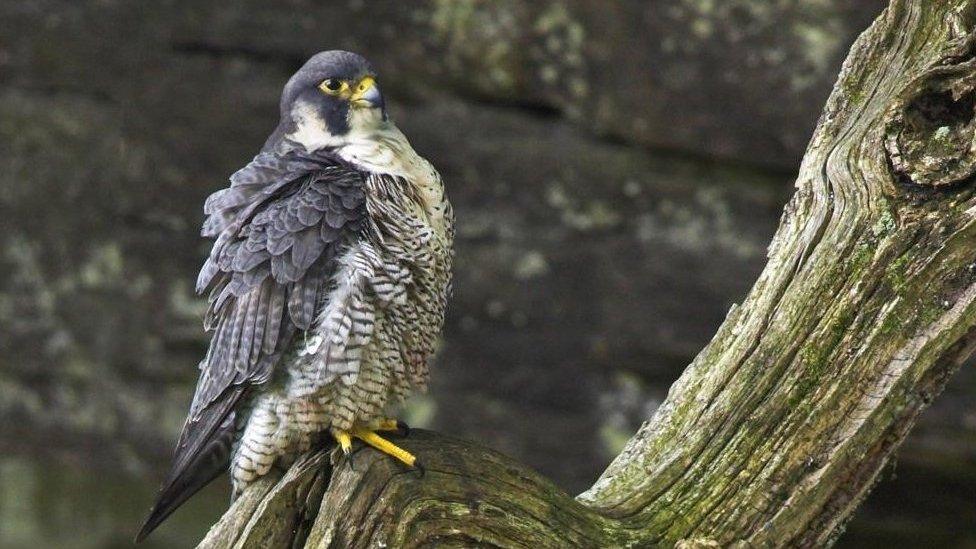
It is illegal to take the eggs of most wild birds since the Protection of Birds Act 1954
It is illegal to sell any wild bird's egg, irrespective of its age
Possession of wild birds' eggs is an offence of strict liability
Anyone who chooses to be in possession of eggs is obliged to show, on a balance of probabilities, that their possession is lawful
For persons found guilty of any of these offences, magistrates have the power to impose maximum sentences of £5,000 fine and/or six months' imprisonment per egg.

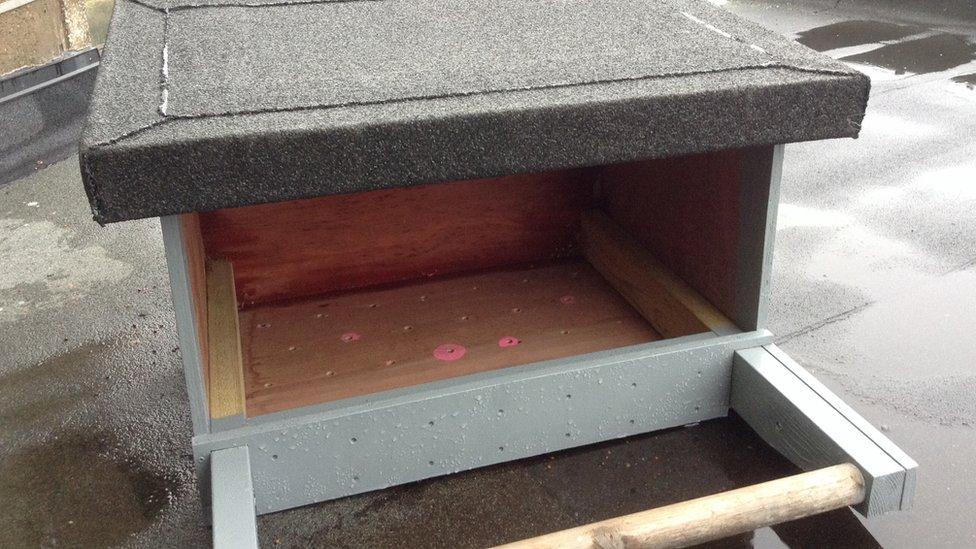
The locations of the nest boxes in Leicester are being kept secret to ensure the peregrines and their eggs remain safe
Richard Kelly, assistant nature conservation officer for Leicester City Council, said: "Peregrines are attracted to towns and cities because there are the right places for them to nest and a good food supply to raise their young.
"The tall buildings resemble the craggy cliff faces they would normally breed on."
The birds of prey are thought to have been returning to the city, where there is a plentiful supply of pigeons, for decades.

Peregrine Falcons
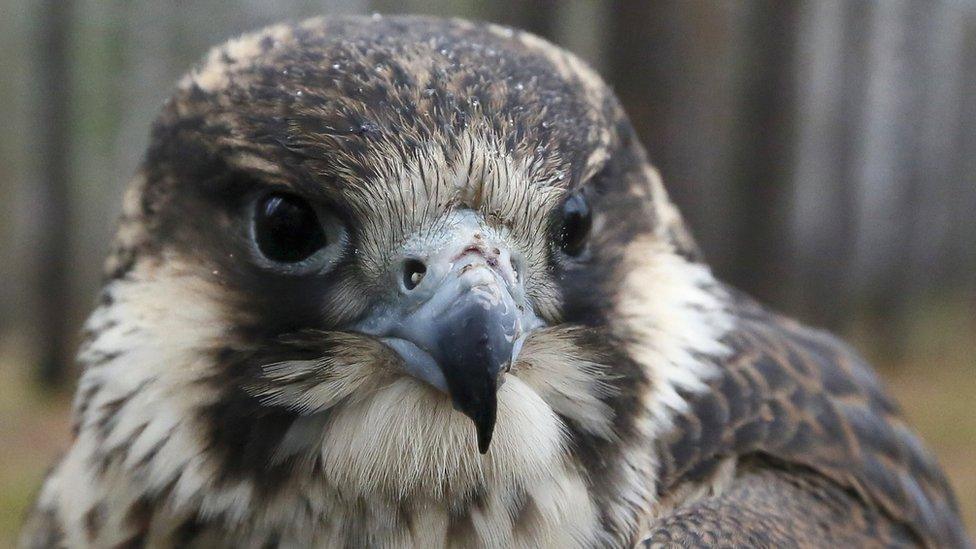
Peregrine falcons became almost extinct in the 1960s after their existence was threatened by pesticides
They became a protected species in 1981
Legislation controlling use of pesticides meant their numbers slowly recovered
The Royal Society for the Protection of Birds (RSPB) estimates there are 1,500 breeding pairs in the UK

- Published28 October 2015
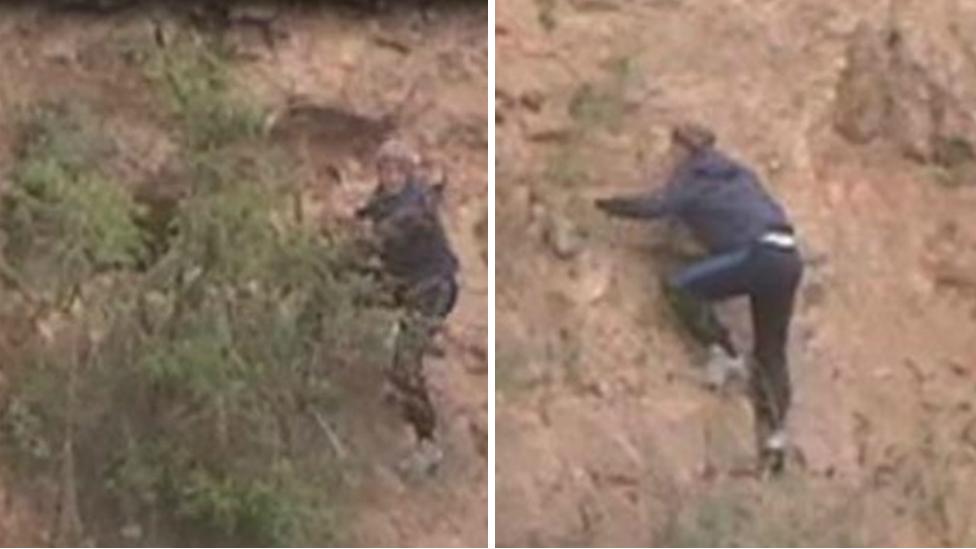
- Published30 August 2015
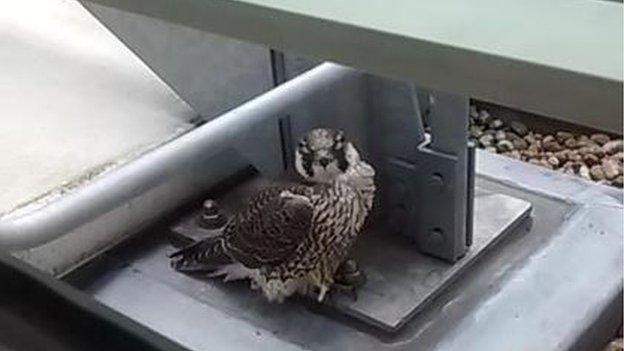
- Published21 July 2015
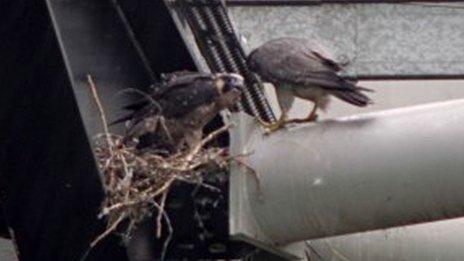
- Published9 June 2015
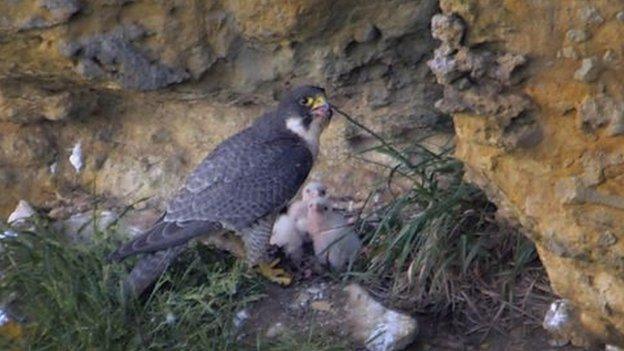
- Published27 May 2015
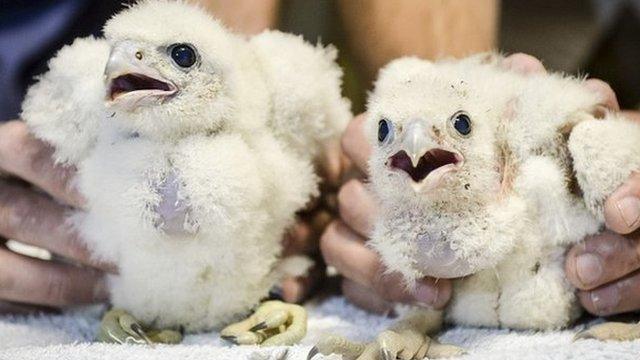
- Published23 April 2015
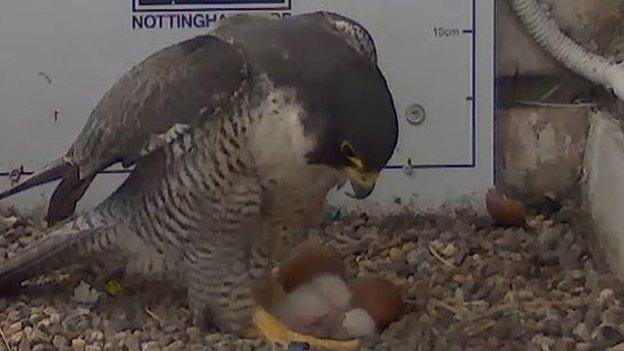
- Published3 March 2015
